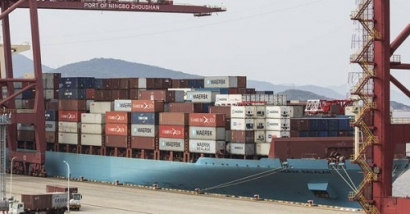
The companies have demonstrated that the CO2-emissions of inland shipping can be reduced up to 90 percent. The fuel can be used without any modifications to the ship or engine.
Dirk Kronemeijer, CEO GoodFuels, commented, “This 100 percent applicability demonstrates that drop-in marine biofuels are by far the easiest and fastest way of decarbonizing inland vessels – and will significantly help in boosting air quality as well. Great news also for cargo owners such as Heineken who now have the option to execute a full coast to coast green corridor from their Zoeterwoude brewery to major export markets such as the USA.”
The demonstration consists of 50 percent-blend and 100 percent sustainable biofuel. It is a continuation of an earlier successful pilot with Heineken using a 30 percent blend.
GoodFuels has provided a fossil-free, high quality, synthetic biofuel that is an an easy-to-use drop-in replacement for fossil fuel. This second generation biofuel prevents bacterial growth or flocculation and can be used directly in the diesel engines without modifications to the ship or the tank infrastructure.
CCT is using alternative fuels as part of its carbon footprint reduction goals. This demonstration is part of the Green Corridor which is an intensive cooperation in an open-partner network to realize sustainable transport routes, originated by Heineken, CCT, the province of Zuid-Holland, Wageningen Environmental Research and Port of Rotterdam.
Bert van Grieken, Director Multimodal CCT, said, “With this shared initiative we again take that extra step to achieve the climate ambitions. This underlines our commitment to offer our customers sustainable logistics solutions.”
Today more than 30 partners work on the shared ambition of making the transport routes between Zoeterwoude and the Port of Rotterdam climate neutral, clean, efficient, economically sustainable and fitting the environment..
Funding for the demonstration was provided by a temporary incentive scheme ‘Clean inland shipping and sustainable logistics in Rotterdam’ and is again supported by EICB (Expertise and Innovation Centre Inland shipping) in cooperation with the Port of Rotterdam, which has its own fleet running on sustainable biofuels.

